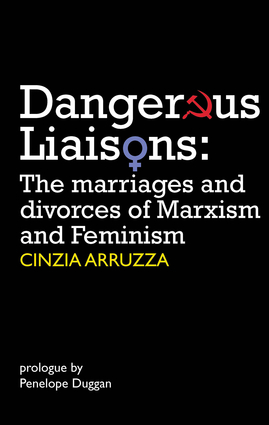Overview
An accessible introduction to the relationship between the workers’ movement and the women’s movement, this book investigates the questions Why does gender inequality exist? and How does it relate to capitalism? Historical examples range from the mid-19th century to the 1970s and include events, debates, and key personalities from China, Russia, the United States, France, Italy, Spain, and Britain. It shows time and again the controversial, often difficult relationship between feminism and Marxism. The theoretical questions discussed include the origins of women’s oppression, domestic labor, dual systems theory, performativity, and differentialism. Women’s oppression is a structural element of the division of labor and one of the direct factors through which capitalism not only reinforces its ideological domination but also organizes the exploitation and reproduction of labor. The integration of patriarchal relations and capitalism has led to their radical transformation—in the family, in terms of women’s place in production, in sexual relations, and with respect to sexual identity. Marxism needs to probe complex processes: ongoing transformations and crises, a global context creating an increasingly feminized workforce, and changing relations between men and women. The book maintains that it is a mistake to submerge gender into class or to believe that freedom from exploitation automatically brings about women’s liberation and the ending of sexual roles; it is equally wrong is to think the class question can be removed and gender made the main enemy.Reviews
“Although Cinzia Arruzza calls her aim ‘modest,’ her book is anything but. She provides a masterful survey of the vexed relations between feminism and socialism over the course of more than two centuries. The result is not only a lucid overview but also a penetrating intervention into current debates. Perfectly timed to enlighten new generations of activists and theorists, Arruzza’s book offers the best short introduction to a question that is as relevant as ever today: How, in the wake of a capitalist crisis of global dimensions, can struggles against male domination be made to synergize with struggles against neoliberalism?” —Nancy Fraser, professor, the New School
“Offers an acute, critical and refreshingly open analysis of feminist theories and, best of all, links the development of theory to the historical and contemporary political issues facing women activists. A perfect book for students but also for anyone seeking to learn more about the ongoing dialogue between Marxism(s) and feminism(s). Aruzza’s presentation of complicated theoretical debates is fair, accessible, and lively; her wide-ranging historical account hits the highlights (and lows) of feminist engagements with the revolutionary left across Europe and in the U.S.” —Johanna Brenner, professor emeritus, Portland State University
"Dangerous Liaisons by Cinzia Arruzza is most certainly a well written book and ideal for anyone interested in the political and theoretical history of the relationship between feminism and Marxism. If anyone is looking for a history of this relationship, I can recommend this book without hesitation." —Chris Byron, graduate teaching assistant in philosophy, the University of GeorgiaAuthor Biography
Cinzia Arruzza is an assistant professor of philosophy at the New School and an International Institute for Research and Education (IIRE) fellow. She has had articles appear in various publications, including the History of Political Thought journal. She lives in New York City. Penelope Duggan is a feminist-activist and a former director of women's studies for IIRE. She has active responsibility in the planning of the political and educational programs of IIRE, particularly in developing programs for women and youth activists.

